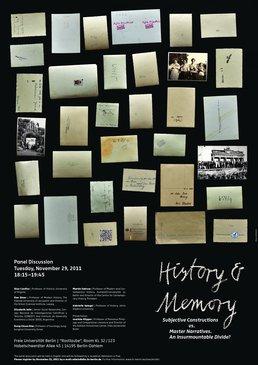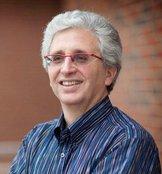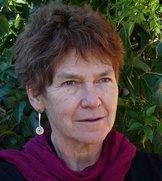History & Memory - Subjective Constructions vs. Master Narratives. An Insurmountable Divide?
Panelists:
|
© private |
Alon Confino is Professor of History at the University of Virginia. His research on historical memory and method, and on German and European history, is both extensive and influential. His new book, Foundational Past: The Holocaust as Historical Understanding, published in October 2011 by Cambridge University Press, proposes a new interpretation of the Holocaust, treating it as a problem of cultural history. This approach considers the ways historians interpreted another foundational event in modern European history—the French Revolution. Alon Confino received a 2011 Guggenheim Fellowship for his project on Nazi memories that made the Holocaust, which explores the imagination and fantasies that made the Holocaust conceivable and possible. He has now embarked on a new project, investigating the year 1948 in Palestine from a global perspective. |
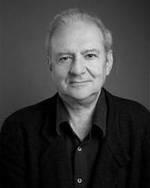
© private |
Dan Diner is Professor of Modern History at the Hebrew University of Jerusalem, Director of the Simon Dubnow Institute for Jewish History and Culture at the University of Leipzig, Professor at the History Department at Leipzig University and member of the Saxonian Academy of Sciences in Leipzig. Diner published on the European History of the 20th century and on the Middle East. His focus is on German history, especially National Socialism, the Holocaust and Jewish history. His recent publications include: Zeitenschwelle. Gegenwartsfragen an die Geschichte, 2010; Disseminating German Tradition: The Thyssen Lectures, ed. with Moshe Zimmermann, 2009; Aufklärungen: Über Varianten von Moderne, 2008; Gegenläufige Gedächtnisse: Über Geltung und Wirkung des Holocaust, 2007; Restitution and Memory: Material Restoration in Europe, ed. with Gotthard Wunberg, 2007; Synchrone Welten: Zeitenräume jüdischer Geschichte, ed., 2005; Versiegelte Zeit: Über den Stillstand in der islamischen Welt, 2005. |
|
© private |
Elizabeth Jelin is Senior Researcher at Consejo Nacional de Investigaciones Científicas y Técnicas, Argentina (CONICET), at Instituto de Desarrollo Económico y Social (IDES) in Buenos Aires, Argentina. She is Professor of the Doctoral Program in the Social Sciences, at Universidad Nacional de General Sarmiento (UNGS) and IDES and Member of the Academic Board of the Wissenschaftskolleg zu Berlin. Her research interests are: human rights, memory of political repression, citizenship, social movements, gender and the family. She has published in these fields, both in English and Spanish: State Repression and the Labors of Memory, Minnesota 2003; Pan y afectos: la transformación de las familias, Buenos Aires 2010; Fotografia e identidad: captura por la cámara, devolución por la memoria, co-authored with Ludmila da Silva Catela and Mariana Giordano, Buenos Aires 2010; Por los derechos: Mujeres y hombres en la acción colectiva, co-authored with Sergio Caggiano and Laura Mombello, Buenos Aires 2011. |
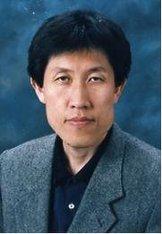
© private |
Dong-Choon Kim is Professor of Sociology at the Sungkonghoe University in Seoul, Korea. Nominated by the President Noh, Moo-hyun he served the Korean government as a standing commissioner of the Truth and Reconciliation Commission, Republic of Korea (TRCK) from December 1, 2005 to December 10, 2009. As a commissioner, he has directed the investigation of the Korean War Massacres. This was the first investigation carried out by a governmental body after the incidents. Dong-Choon Kim has a PhD from Seoul National University (1993). The research areas that he focuses on are the historical sociology of Korean politics, working class formation and the Korean War. He also has acted as an organizer of progressive academic movements since the 1980s and has participated in several civil movements in South Korea (co-builder of PSPD in Korea). In 2004 Korea's most progressive newspaper -The Hankyoreh - nominated him as a member of "the 100 people who will lead Korean society". He was awarded the 20th DanJe Prize in 2005 for his academic achievements and services to the community. Since 1999, he has written articles on the Korean War Massacres and has helped concerned intellectuals and victims’ families to cope with the massacres committed by South Korean authorities during the Korean War (1948-1953). He has written several academic articles and books including: Social Movement in 1960s of Korea, 1991; A Study of Korea's Working Class, 1995; Shadow of Modernity, 2000; War and Society (Der Korea-Krieg und die Gesellschaft), 2000; Engine of America – Market and War, 2004. |
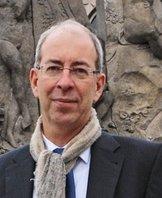
© private |
Martin Sabrow is Professor for Modern and Contemporary History at the Humboldt-Universität zu Berlin and Director of the Centre for Contemporary History in Potsdam. He studied History, German Literature and Linguistics, and Politics at the universities of Kiel and Marburg. He has a PhD from the Universität Freiburg/Breisgau. Martin Sabrow wrote his PhD thesis on the subject of political murder in the early Weimar republic; and his postdoctoral thesis at the Freie Universität Berlin in 2000 was a study on GDR historiography. He taught at the universities of Berlin, Munich (LMU), Braunschweig and the University College of London and was a fellow of the Robert-Bosch-Foundation at the CNRS Paris. His main topics of research are German History in the 20th century, history of historiography and historical culture. He was chairman of a federal commission on the future of the GDR in public ‘memory culture’. His publications include: Die verdrängte Verschwörung: Der Rathenau-Mord und die deutsche Gegenrevolution, Frankfurt a.M. 1999; Das Diktat des Konsenses: Geschichtswissenschaft in der DDR 1949-1969 (= Ordnungssysteme. Studien zur Ideengeschichte der Neuzeit, Bd. 8), München 2001; Herr und Hanswurst: Das tragische Schicksal des Hofgelehrten Jacob Paul von Gundling, Stuttgart/München 2001; Zeitgeschichte als Streitgeschichte: Große Kontroversen seit 1945, co-ed. with Klaus Große Kracht and Ralph Jessen, München 2003; Skandal und Diktatur: Formen öffentlicher Empörung im NS-Staat und in der DDR, Göttingen 2004; Wohin treibt die DDR-Erinnerung? Dokumentation einer Debatte, co-ed., Göttingen 2007; 50 Klassiker der Zeitgeschichte, co-ed. with Jürgen Danyel and Jan-Holger Kirsch, Göttingen 2007. |
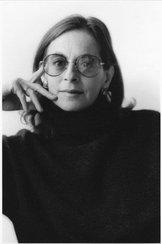
© private |
Gabrielle M. Spiegel is Krieger-Eisenhower University Professor of History and Gilman Scholar at the Johns Hopkins University, where she also served as Chair of the History Department. She was President of the American Historical Association and President of the Berkshire Conference of Women Historians. She served as Dean of Humanities at the University of California, Los Angeles and twice as Dean of Faculty at Johns Hopkins University. She is a Fellow of the Medieval Academy and a Fellow of the American Academy of Arts and Sciences. She has a doctorate in Medieval History from Johns Hopkins University. Her work focuses on the theory and practice of writing history, both in the Middle Ages and in the modern era. Her publications include: The Chronicle tradition of Saint-Denis: A Survey, Berkley/Los Angeles 1978; Romancing the Past: The Rise of Vernacular Prose Historiography in Thirteenth-Century France, Leiden/Boston 1993; The Past as Text: The Theory and Practice of Medieval Historiography, Baltimore 1997; Practicing History: New Directions in Historical Writing after the Linguistic Turn,London 2005; as well as some 70 articles on medieval historiography and contemporary theories of historical writing. |
Presentation: |
|
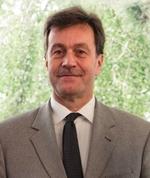
© Tomas Borbás |
Joachim Küpper is a Professor of Romance Philology and Comparative Literature at Freie Universität Berlin. He is the Director of the Dahlem Humanities Center at Freie Universität Berlin. He was granted the Gottfried-Wilhelm-Leibniz Award of the Deutsche Forschungsgemeinschaft in 2001. In 2009 he received an Advanced Grant from the European Research Council. He is the general editor of Poetica, and a co-editor of Romanistisches Jahrbuch. He is a member of Leopoldina/ German National Academy of Sciences and a corresponding member of the Goettingen Academy of Sciences. He sits on the Scientific Committee for the German Academies’ Research Programme, and on the Standing Committee on Research of the German University Presidents’ Conference (HRK). His focus is on Romance Literatures, Theory of Literature and Arts. His publications include: Ästhetik der Wirklichkeitsdarstellung und Evolution des Romans von der französischen Spätaufklärung bis zu Robbe-Grillet, Stuttgart 1987; Diskurs-Renovatio bei Lope de Vega und Calderón, Tübingen 1990; Petrarca. Das Schweigen der Veritas und die Worte des Dichters, Berlin/New York 2002; Zum italienischen Roman des 19. Jahrhunderts. Foscolo, Manzoni, Verga, D’Annunzio, Stuttgart 2002. You will find further publications here. |

